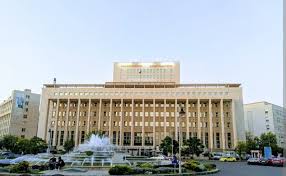Syria Lifts Restrictions on Money Transfers Between Provinces: A Step to Facilitate the Economy or a Formal Procedure?

The content of the decision and its stated goals start with lifting restrictions and allowing the transfer of money between provinces without prior requests or maximum limits (except for the provinces of Damascus, Rural Damascus, and Quneitra, which were previously exempted with a ceiling of 25 million Syrian pounds for travelers).
Protecting liquidity and encouraging the use of official banking channels to combat tax evasion and money laundering. Supporting trade by facilitating the movement of capital between regions to revitalize commercial sectors.
The decision comes at a time when the Syrian economy faces severe challenges, the most important of which are international sanctions that hinder external banking transfers. The internal market is fragmented due to the division of areas of influence and mass displacement.
The parallel economy is rampant, where unofficial cash transfers dominate.
The potential positives of the decision include alleviating the burden on traders and citizens in transferring money. Reducing reliance on dangerous unofficial intermediaries. A symbolic signal of "openness" amid a long financial isolation.
As for the fears and challenges, they stem from the lack of trust in banks after years of restrictions on withdrawals and transfers and the continuation of sanctions, as the decision does not solve the problem of the ban on international transfers (such as "SWIFT"), which limits its impact.
The step, despite its positivity, remains insufficient without broader reforms, the most important of which is stabilizing the exchange rate through monetary policies that combat inflation. Lifting Western sanctions or finding alternatives to connect the Syrian market with the outside world. Reconstructing infrastructure to commercially link the provinces. Most importantly, combating corruption and ensuring that the new freedom does not turn into a tool for plundering funds.
The decision is considered a positive development in the policy of the central bank, but its success is contingent upon addressing the roots of the economic crisis, not just removing formal restrictions.